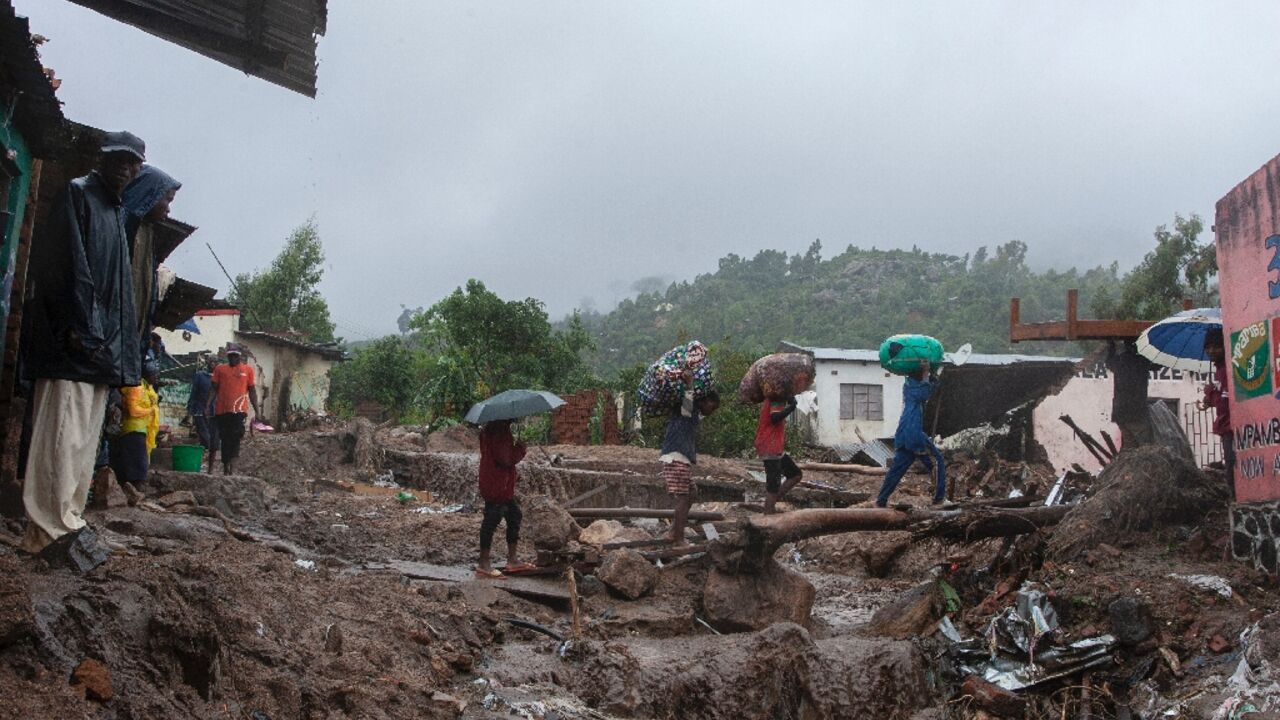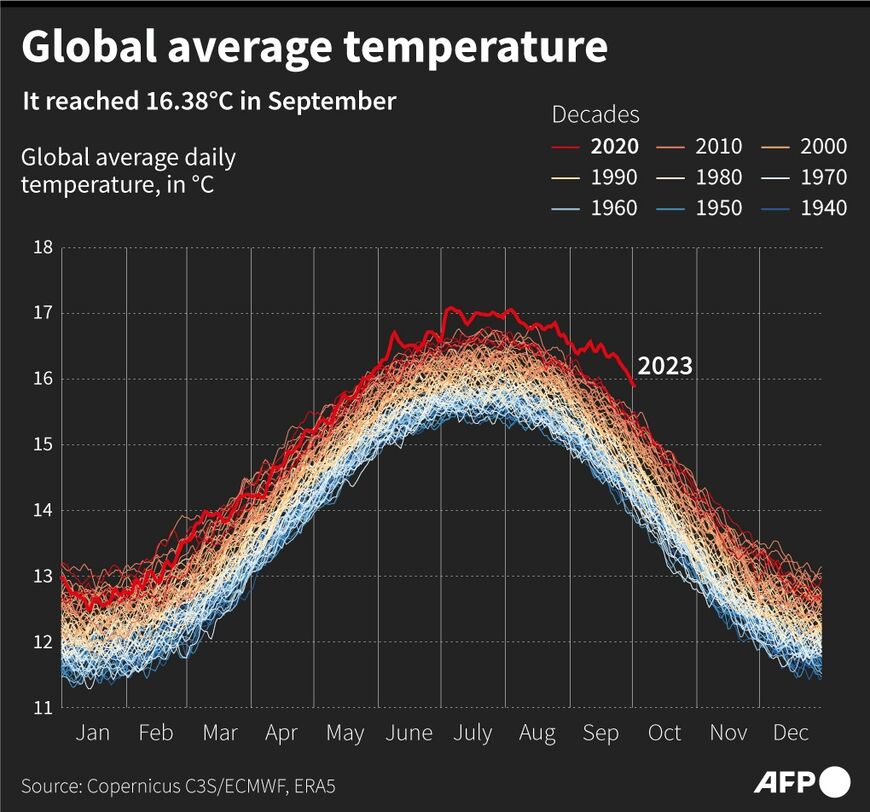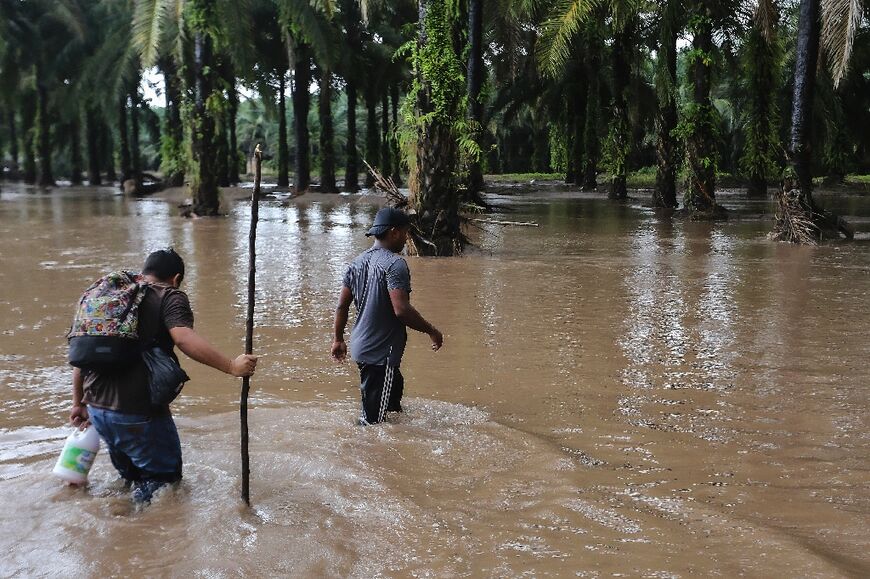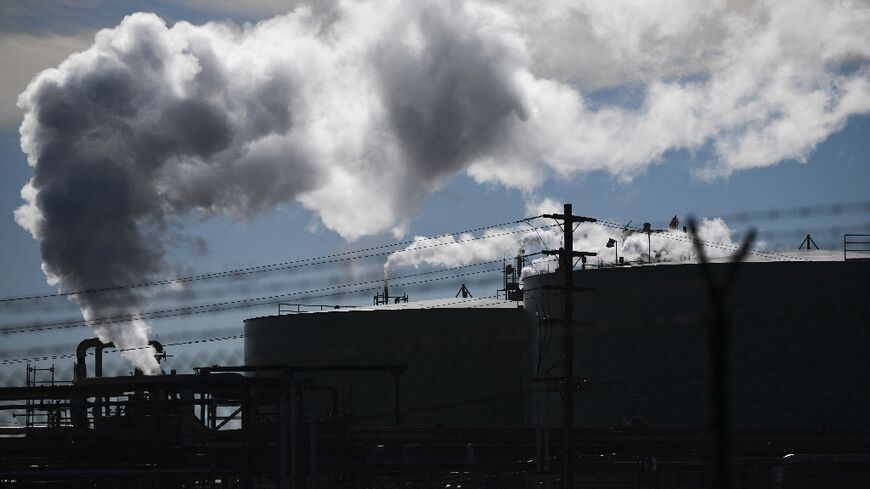US offers no new cash to climate fund for developing world

The United States offered no additional funds to the world's largest climate fund on Thursday, overshadowing fresh support for nations most vulnerable to global warming and infuriating campaigners.
The Green Climate Fund (GCF), seen as a key element of the landmark 2015 Paris Agreement, funnels grants and loans for adaptation and mitigation projects, mostly in Africa, the Asia-Pacific region, Latin America and the Caribbean.
It plays a part in the promise by rich countries to supply $100 billion of climate financing to poorer nations every year, which has already missed an initial 2020 deadline.
Financing is one of the most contentious topics in international climate diplomacy as the world scrambles to limit warming to 1.5 degrees Celsius (2.7 degrees Fahrenheit) above pre-industrial levels.
Developing countries least responsible for climate change are seeking support from richer polluting nations to adapt to the increasingly ferocious and expensive consequences of extreme weather, and for their transitions to cleaner energy sources.
The issue will play a major role in crunch UN talks, known as COP28, beginning in Dubai on November 30.
More than $9.3 billion for 2024-2027 was pledged by 25 countries at Thursday's donor conference in the German city of Bonn.
The total is set to rise as five participants prepare to make announcements soon, the German government said.
But the number currently falls short of the $10 billion countries pledged in the GCF's last replenishment cycle for 2020-2023.
Billions of dollars came from pledges already announced by Britain, France and Germany.
- 'Inexcusable' -
The United States did not announce a new contribution, citing "uncertainty in our budget processes".
The US House of Representatives is in limbo after far-right Republicans helped to oust its speaker Kevin McCarthy on Tuesday, weeks ahead of a new funding deadline that could shut down the federal government.
Washington emphasised its "strong and steadfast confidence" in the GCF, according to a statement read out on behalf of Alexia Latortue, Assistant Secretary for International Trade and Development.
The United States pledged around $3 billion for the fund's first resource mobilisation in 2014 under former president Barack Obama, but his successor Donald Trump gave nothing five years later.
Australia, one of the world's biggest polluters, announced it was rejoining the fund after withdrawing under former conservative leader Scott Morrison, while Israel said it would make its first contribution.
But campaigners denounced what they saw as a lack of action by countries that reiterated pre-existing pledges or made no new efforts.
"The silence of the United States, even as it participates on the GCF board and shapes policies without meeting its financial obligations, is glaring and inexcusable," said Harjeet Singh, head of global political strategy at Climate Action Network International.
The total "is nowhere near commensurate with the urgency this crisis and climate justice demands", said Erika Lennon of the Center for International Environmental Law.
"The United States... has failed in its responsibility to provide the finance needed to address the crisis it's largely caused."
Stephen Cornelius, deputy global lead for climate and energy at WWF International, warned that "governments are not backing their words with actions" ahead of COP28.
- $50 billion by 2030 -
The GCF has laid out a "50by30" vision to manage $50 billion by 2030 -- almost triple its current capital of $17 billion -- and invest more through a decade it sees as critical for climate action.
Rolling out solar panels in Pakistan and making Philippine agriculture more resilient in the face of unpredictable weather are among projects that have been approved.
The GCF currently has more than 100 implementing partners and various financial instruments to drive public and private investment in developing countries.
Often burdened by debt and high interest rate costs, poorer nations face daunting financial obstacles to their environmental and development goals.
Calls have grown for debt relief and reform of the global financial landscape, long shaped by institutions like the World Bank and the International Monetary Fund.
"Money is not everything but does go a long way" to addressing climate impacts, said Prime Minister Mark Brown of the Cook Islands, a Pacific island nation acutely exposed to rising sea levels and extreme weather events.
The UN's Independent High-Level Expert Group on Climate Finance estimated last year that developing nations would need more than $2 trillion a year by 2030 to fund climate resilience and development priorities.







